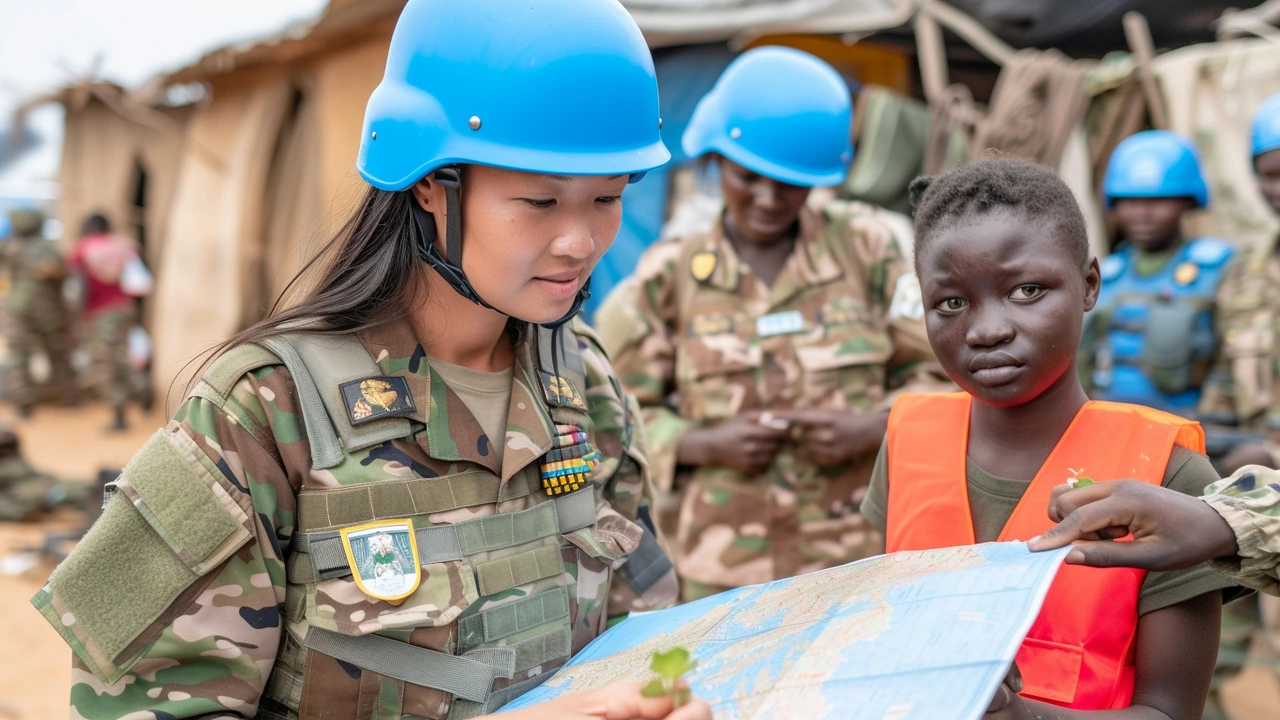Want democracy to stick after a conflict? It’s not just about holding elections. Democracy promotion in fragile settings means building institutions, protecting citizens, and making sure local people shape the future. On this tag page you’ll find hands-on ideas, clear examples, and articles that connect democracy work to peacekeeping efforts on the ground.
Strong democratic institutions lower the chance of renewed violence. The UN and World Bank have often found that countries with functioning courts, accountable security forces, and inclusive political spaces are more stable. But these things take time and careful sequencing—security and basic services must come before big political moves, or elections risk doing more harm than good.
Think of Liberia after its civil war: peacekeepers helped create a secure environment that allowed voter registration, civic outreach, and a credible 2005 election. That mix—security, administration, and civic work—is a repeatable pattern in places that move from war to stable politics.
1) Start with safety. Without basic security, political processes are hollow. Peacekeepers often need to protect civilians and secure borders so other democratic activities can happen safely.
2) Support local institutions, not replace them. Train court staff, help election commissions with procedures, and fund transparent financial management. When locals run key systems, legitimacy grows faster than when outsiders do everything.
3) Focus on rule of law and security-sector reform together. Police and courts must be trusted and fair. That means training, vetting, and accountable oversight—so ordinary people see justice, not impunity.
4) Invest in civic education and media freedom. Voters need reliable information and basic knowledge about rights and processes. Support local journalists, civic groups, and nonpartisan voter education programs that explain how democracy works in plain terms.
5) Time elections carefully. Holding a vote before the ground is ready can legitimize spoilers. Use assessments and benchmarks—security levels, functioning institutions, and voter access—to decide when to go ahead.
6) Coordinate donors and agencies. Fragmented support creates gaps and overlaps. A shared plan that ties short-term stabilization to long-term governance makes funding and training more effective.
Curious where to learn more? Explore the linked articles here for mission reports, personal stories, and strategic overviews. You’ll find pieces on how peacekeeping teams help run elections, how communities rebuild trust, and how researchers track progress in fragile states.
If you have a specific country or mission in mind, search the tag to find relevant case studies and lessons. Democracy promotion is messy, but with clear steps and local partners, it becomes practical work—not just good intentions.

Hey there, readers! The role of peacekeeping in promoting democracy is a fascinating topic, isn't it? This post provides an in-depth exploration of how peacekeeping missions can foster democratization in conflict-ridden regions. From understanding the essential role of international peacekeepers to dissecting the mechanisms behind constructive conflict resolution, you'll discover so much more. Join me as we delve into this intriguing aspect of global politics!
